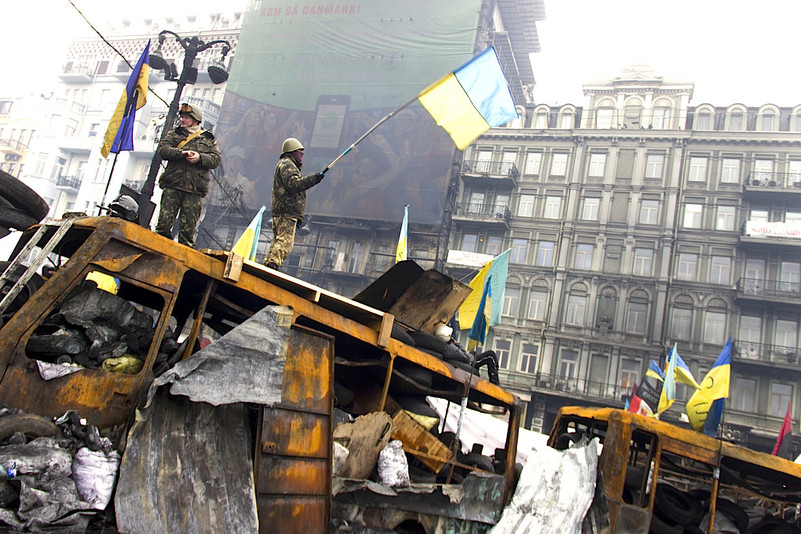Download PDF :


EU Observer (10 May 2019)
EU diplomacy in the former Soviet region and in west Africa will dominate events this week, as the European Parliament (EP) halts work ahead of the upcoming election.
EU foreign ministers will meet counterparts from Armenia, Azerbaijan, Belarus, Georgia, Moldova, and Ukraine in Brussels on Monday (13 May) to celebrate 10 years since the launch of the 'Eastern Partnership'.
The leaders of the former Soviet satellites, with the exception of Belarus, will also hold a summit with top EU officials later the same day.
The partnership scheme, designed by Poland and Sweden, was meant to build closer relations, including association and free-trade treaties, with countries on the EU's eastern flank.
But Azerbaijan, an oil and gas dictatorship, and Belarus, a staunch Russian ally, have kept their distance from the project, while Armenia, under Russian pressure, opted to join Moscow's alternative Eurasian Union instead.
Russia also invaded Ukraine in 2014 in order to keep it from aligning with the West, in a war which has claimed 13,000 lives and prompted critics of the EU policy to say Europe should not have tried to encroach on Russia's backyard.
EU foreign and defence ministers will also meet their counterparts from Burkina Faso, Chad, Mali, Mauritania, and Niger in Brussels on Tuesday to discuss counter-terrorism and broader security cooperation in the Sahel region.
And EU foreign relations chief Federica Mogherini will meet the EU and UN-backed Libyan prime minister Fayez al-Sarraj on Monday to shore up support for his rule, amid fighting in Tripoli which threatens to turn into a civil war, pushing more refugees toward Europe.
The EU foreign ministers will discuss the Venezuela political crisis and the threat of US law suits against European firms doing business in Cuba on Monday.
They will also hold talks on EU efforts to compete with China and Russia for influence in the Western Balkans, while defence ministers, on Tuesday, will discuss EU-Nato cooperation and EU projects to develop joint military capabilities that could one day led to the creation of a joint European armed forces.
Turning away from the world of international diplomacy, EU agriculture ministers will discuss reforms of the bloc's own agricultural subsidies beyond 2020 on Tuesday, including on how to make European farming more climate friendly.
EU development ministers will also hold talks on Thursday on how to use financial assistance to help poorer nations meet global warming targets.
Rounding off the week, finance ministers will, on Friday, discuss digital taxation in the international arena as well as common application of excise duties on alcohol, tobacco and energy.
They will also discuss the future of European Commission monitoring of EU member states national budgets amid calls by Italy to loosen fiscal discipline rules.
But the European Parliament and the European Commission will have a quiet week, as MEPs head home to fight for their seats in the upcoming EP elections, starting on 23 May, as the political action shifts from Brussels back onto home turf.

 SOUTH CHINA SEA: PHILIPPINES-CHINA RELATIONSHIP TO 'SOUR' AS DUTERTE MUST PROTECT SHOALS
Asia - Pacific
13.05.2019
SOUTH CHINA SEA: PHILIPPINES-CHINA RELATIONSHIP TO 'SOUR' AS DUTERTE MUST PROTECT SHOALS
Asia - Pacific
13.05.2019




























